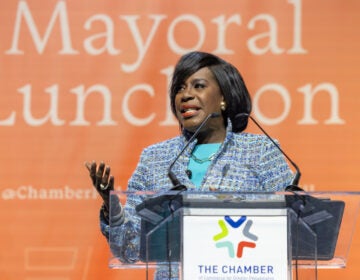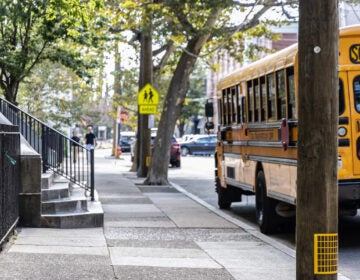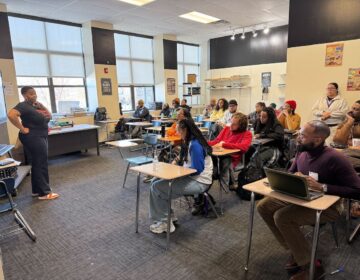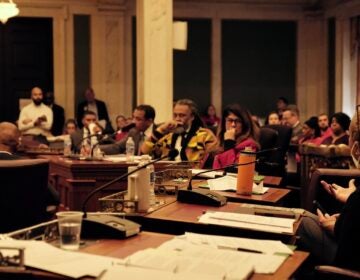Philly teachers and researchers are weighing the future of education — and how to get there equitably
The annual AERA conference is in Philly this week, focusing on how research and policy changes can help provide educational opportunities for everyone.
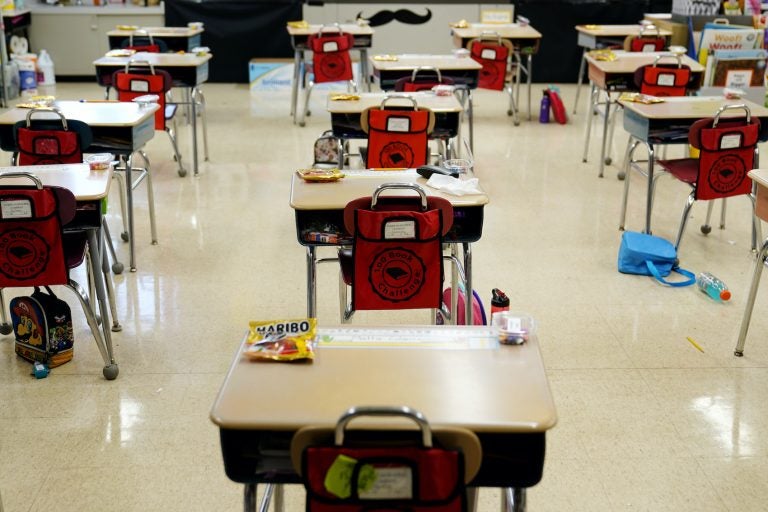
Desks are arranged in a classroom at Panther Valley Elementary School, Thursday, March 11, 2021, in Nesquehoning, Pa. (AP Photo/Matt Slocum)
From Philly and the Pa. suburbs to South Jersey and Delaware, what would you like WHYY News to cover? Let us know!
Fifteen thousand educators, researchers, graduate students, policymakers and education experts convened in Philadelphia this week to discuss the state of education at the American Educational Research Association (AERA) annual meeting.
AERA supports research to advance the education field and promotes the use of research to improve education worldwide.
The theme for this year’s annual meeting was “Dismantling Racial Injustice and Constructing Educational Possibilities: A Call to Action.”
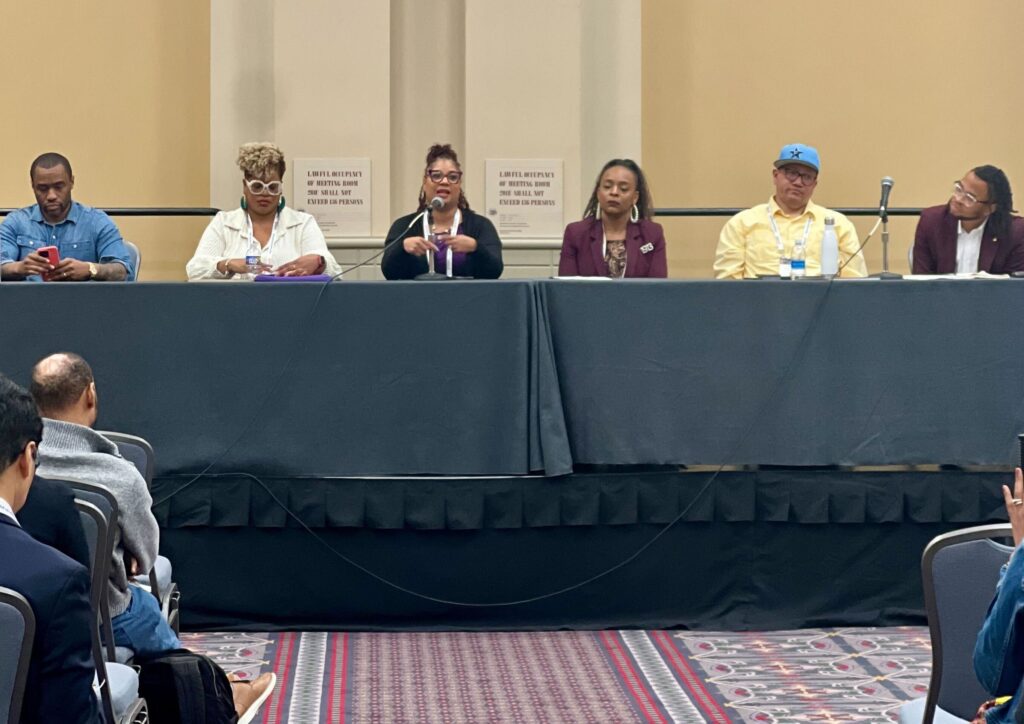
“AERA has done a lot of great work. It means a lot for me to attend AERA in the city that raised me,” said Philly native and educator Camika Royal, Ph.D.
Royal is the Associate Professor of Urban Education at Morgan State University in Baltimore, and her education hailed from the School District of Philadelphia.
A Central High School alum, Royal shared her perspective on public school reform in Philadelphia during a panel discussion on how race has impacted Philadelphia students over the past decade.
Royal said her Penrose upbringing allowed her to see firsthand that students in her Southwest neighborhood faced inequities — particularly when it came to making choices about what school they should attend.
Royal recalled that some students who attended neighborhood schools couldn’t apply for higher-performing schools outside of their neighborhood because they didn’t meet the requirements.
She said students didn’t often have access to prerequisite classes and resources that would prepare them to be eligible to apply for those more rigorous schools.
Royal believes everyone should be afforded a good education regardless of where they live.
“I could go to any school I wanted to because I had great grades, but the idea that my sister, who was not the same type of student I was, could not go to any school she wanted to, that was difficult,” said Royal. She proudly added that she and her sister both earned their doctorate degrees despite those challenges.
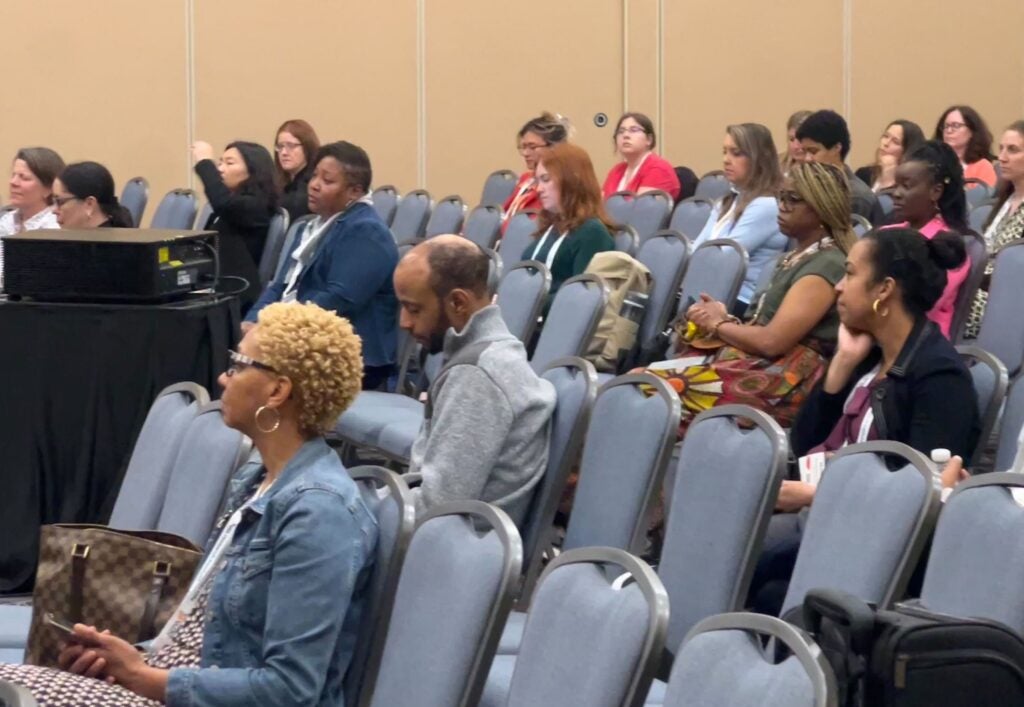
Royal and other attendees agreed that the conference’s focus on the impact of race and access to educational opportunities is not only timely, but crucial to the future of education.
“The idea that some of us have access to some things and others of us don’t is something that has never set well with me,” said Royal.
Southwest Philly native and Science Leadership Academy At Beeber school counselor Melissa Lawson, M.Ed., voiced similar concerns.
Lawson wanted to improve the chances for children who came from the same place she did, and became a school counselor in her old West Philly neighborhood.
She pointed to 2013, when the School District of Philadelphia laid off nearly 4,000 employees due to funding shortages. Lawson spoke up for those who served as school counselors.
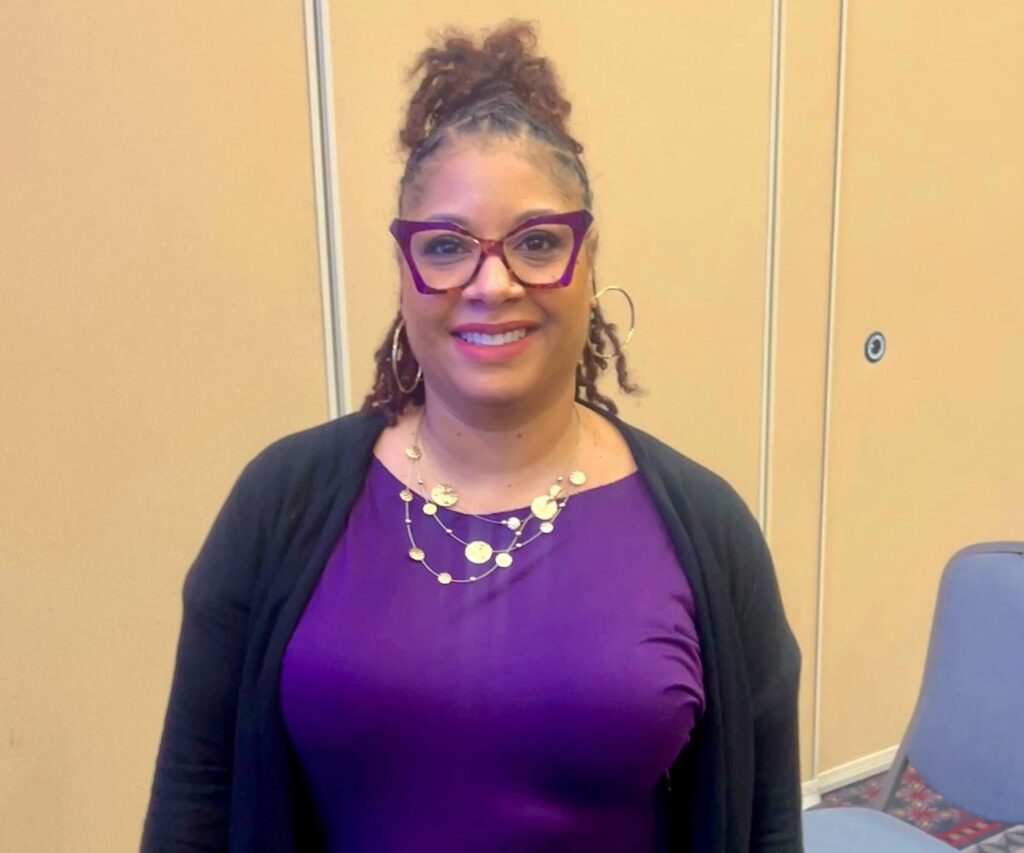
She was one such counselor who lost her job, and although she was able to return to her position later eventually, many of her colleagues did not.
“I don’t believe we have fully recovered from having laid off every school counselor. There are just too many of us that haven’t returned to the profession,” said Lawson.
“School counselors are really important because they are the backbone of a school. We do the social, emotional..we bridge the gap between the students and the teachers.”
Lawson said many schools need to hire more counselors to help students in neighborhoods that need those services most.
“There are a lot of teachers in the district, but you can’t replace a counselor in a school,” said Lawson.
Lawson said she perceives a divide regarding public education and the resources that schools receive.
The panel discussed at length the reality that schools in neighborhoods of low wealth have fewer resources than schools in higher-income neighborhoods.
These conversations allow attendees to have honest discussions and hear from fellow educators about what’s happening in classrooms across the country.
The AERA conference and its sessions deeply consider education research and explore topics on diversity, race, low-wealth communities, equity, equal educational opportunities, and defending freedom while discussing ‘woke’ topics in the classroom.
Many educators say they hope to discuss and learn how to manage racial equity and issues that impact the community as it relates to minorities and education.
Organizers hope attendees can take what they learn from these conversations and apply it to the schools and institutions where they serve.
The annual meeting at the Pennsylvania Convention Center continues through April 14.

Get daily updates from WHYY News!
WHYY is your source for fact-based, in-depth journalism and information. As a nonprofit organization, we rely on financial support from readers like you. Please give today.


